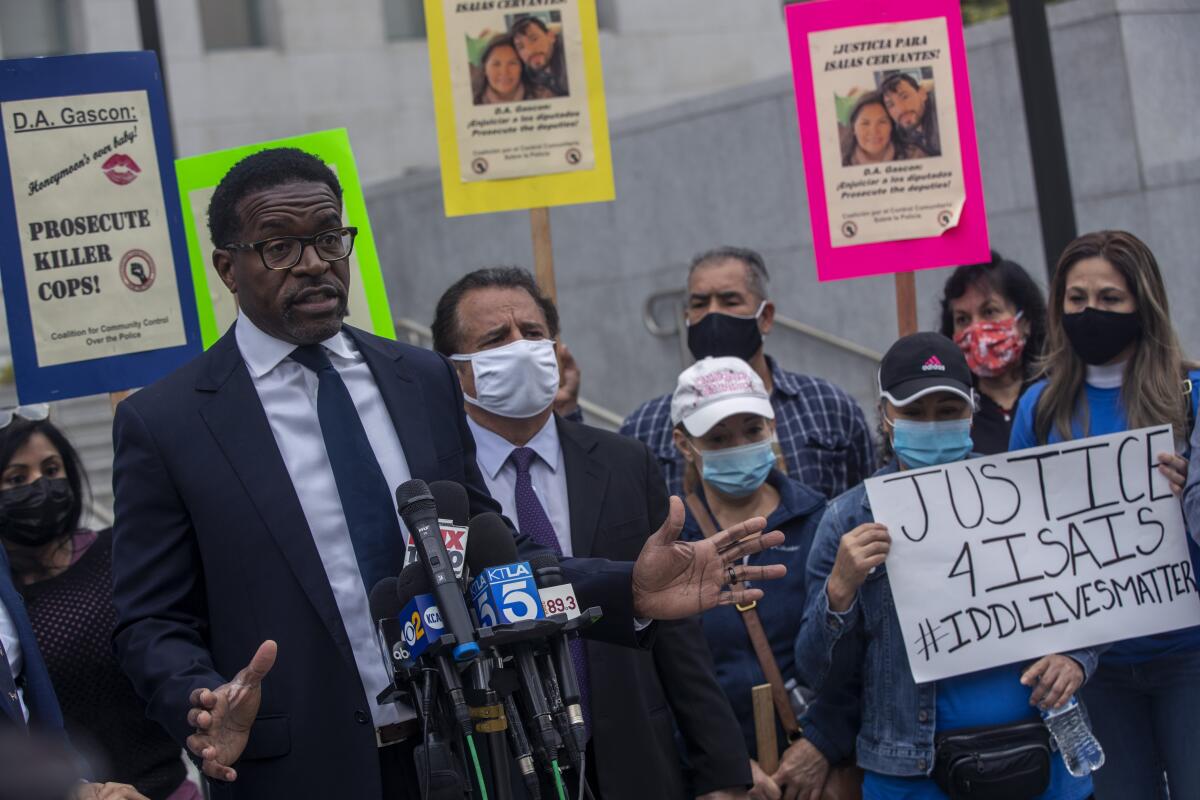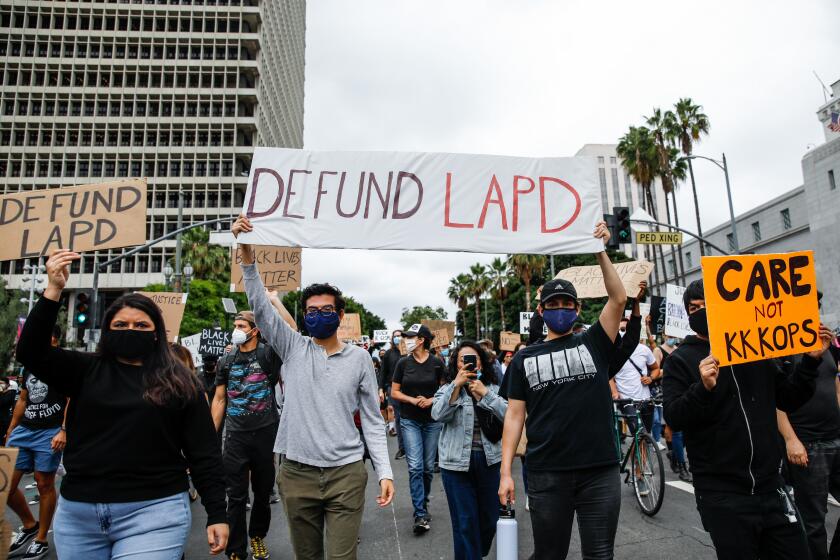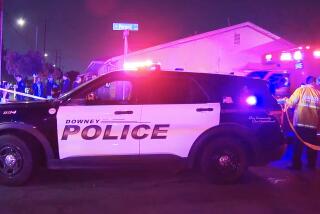Editorial: Deputies shot an autistic man, then the justice system terrorized him. There’s a better way.

Isaias Cervantes had become agitated and began shoving his mother. Autistic and deaf, and dealing with anxiety and possibly intellectual disabilities, the 25-year-old man was generally calm but could occasionally become difficult. His sister called 911 and asked that someone come to the house in Cudahy and take her brother to the hospital.
It was March 31, 2021. When two Los Angeles County sheriff’s deputies arrived, Cervantes’ mother and sister went outside to speak with them. They and Cervantes’ therapist, who was at the home at the time, tried to assure the deputies that the young man, sitting calmly and quietly in the living room, was not a threat.
When Cervantes declined to come outside, the deputies entered the home. One of them told Cervantes that they were there to help him and that he was not under arrest — indeed, no one at any point had accused him of committing a crime — but that, for reasons unstated, they had no choice but to handcuff him.
Then they grabbed him. Cervantes tried to avoid the grasp, and in an audio recording of the incident (no video is available because both deputies’ body cameras fell off), one deputy is heard saying, “He’s going for my gun.” The other deputy then shot Cervantes.
Isaias Cervantes was shot by an L.A. County sheriff’s deputy responding to a family disturbance call. He sustained injuries that could leave him paralyzed.
The bullet damaged his spine and one of his lungs. He underwent multiple surgeries and spent months in physical rehabilitation. In addition to his previous disabilities, Cervantes is now paralyzed.
Cervantes’ story is horrifying but unfortunately not unique. Families doing their best to care for loved ones with special needs or who process information differently than the majority of people must on occasion seek emergency help, and they call 911. Sometimes, instead of the help and expertise they expected, they get officers who escalate rather than calm the situation. They get excessive and unnecessary force, injury and death.
Examples are not hard to come by. Eric Briceno’s mother called 911 when her son was having a mental health crisis in 2020. L.A. County sheriff’s deputies responded to their Maywood home — and beat and tasered the 39-year-old man to death.
Last year, David Ordaz Jr. was having a mental health crisis, and the family called for help. Sheriff’s deputies responded — and shot the 34-year-old-man to death.
The Cervantes case is perhaps unusual in that the young man survived the encounter. But that opened the door to further traumas. Sheriff’s deputies blocked the family from seeing Cervantes in the hospital, and repeatedly came to the house in the aftermath, ostensibly to investigate the incident. But the family saw it as intimidation, especially after they sued the department over the shooting.
Defunding police is not a new idea, and it is not a panacea. It’s also not crazy.
And then, nearly seven months later, the Sheriff’s Department asked the district attorney to file criminal charges — against Cervantes: Assault with a deadly weapon on a law enforcement officer (allegedly one deputy’s own weapon) and two counts of resisting arrest (although there had been no arrest) with force.
After being notified of the details of incident by disability advocates, the district attorney’s office, to its credit (although rather late in the process), notified Cervantes’ attorney last week that it would not pursue the charges, and that Cervantes need not appear for the hearing given “the totality of the circumstances,” according to a spokesman for Dist. Atty. George Gascón. Charges are pending against one of the deputies involved (Jonathan Miramontes) for falsifying records in another case.
The Cervantes case, and others like it, show why we need “alternative crisis response” — a set of protocols and programs that dispatch behavioral health experts and clinicians to handle mental health crises rather than armed law enforcement officers. A nationwide call for such services grew amid protests in the wake of George Floyd’s murder in 2020, and state and local governments have studied various approaches. Beginning this July, a nationwide mental health crisis number — 988 — is supposed to provide an alternative to 911 and provide more appropriate responses. County Supervisor Janice Hahn launched the effort to build a Los Angeles County response system of integrated services.
But if they are to meet the deadline, state and local agencies have to move faster. In California, AB 988 — known as the Miles Hall Act, in memory of yet another man killed by police responding to a mental health call — has yet to pass.
Many law enforcement agencies argue that they already have some form of alternative response protocols. The Sheriff’s Department, for example, has had Mental Evaluation Teams to send health clinicians along with sheriff’s deputies since 1993.
But no MET responded to the Cervantes family’s call. There is little value in alternative programs if they are not used.
Because of the looming 988 deadline, 2022 will likely be a pivotal year for alternative crisis response, in Los Angeles, California and around the nation. We’ve seen, in the examples of Isaias Cervantes and others, how badly things can go wrong. It’s time now to make sure they start going right.
More to Read
A cure for the common opinion
Get thought-provoking perspectives with our weekly newsletter.
You may occasionally receive promotional content from the Los Angeles Times.








